Archives
Category: Q&As
Q&A – Instructor Tom Nunan – Producing
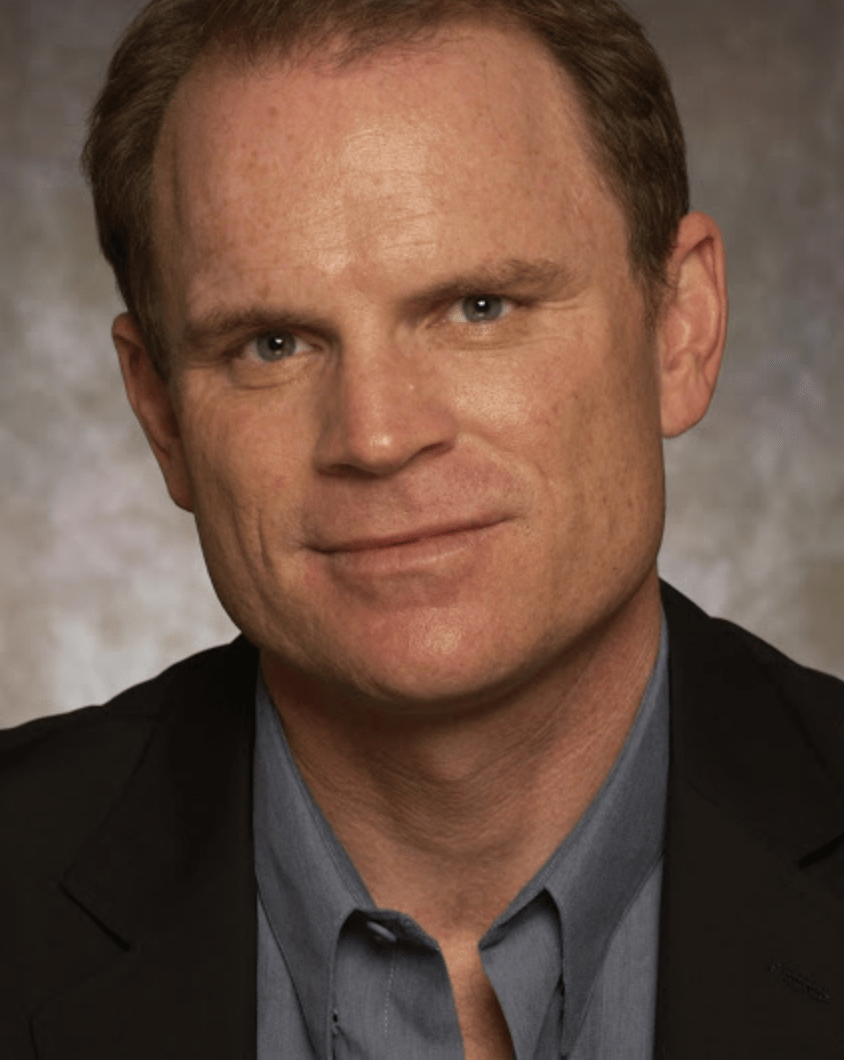 Tom Nunan has had a long, successful career, and continues to remain a vibrant, plugged-in creative force in the industry. Tom is well-known as a producer of the Academy Award-winning Best Picture Crash, as a former President of television network UPN and President of NBC Studios, and as a current founder and partner of Bull’s Eye Entertainment where he has generated a film and television slate of more than 50 projects.
Tom Nunan has had a long, successful career, and continues to remain a vibrant, plugged-in creative force in the industry. Tom is well-known as a producer of the Academy Award-winning Best Picture Crash, as a former President of television network UPN and President of NBC Studios, and as a current founder and partner of Bull’s Eye Entertainment where he has generated a film and television slate of more than 50 projects.
We asked Tom the following questions:
Tom, what advice do you have for new producers looking to break into the film, television and digital media industry?
SPECIALIZE AND HAVE STRONG ROLE MODELS. I’ve got two pieces of advice for emerging producers looking to make their marks in features, TV and digital.
#1 – – SPECIALIZE. Get known for doing one thing really, really, really well. Becoming an expert and the “go to” person in any given genre will give you the freedom to work in other genres or other formats in the future, because you’ve built up a reputation for being EXCELLENT at something, and people can trust you to deliver. JASON BLUM became the most excellent new producing genius in horror and now he’s moved into Oscar and Emmy-nominated documentary films and scripted dramas, well outside the realm of his original expertise. MATTHEW WEINER was a well known multi-camera comedy writer who wanted to expand his portfolio into drama. Having earned everyone’s trust in one genre – – COMEDY – – he moved smoothly into drama, first joining the staff of THE SOPRANOS, then overseeing his masterpiece, MAD MEN.
#2. IDENTIFY THREE ROLE MODELS, and try duplicating their careers. People often complain that the ladder is invisible in Hollywood, especially when starting out. One way to make that ladder visible is to chart the careers of those who’ve come before you. Their successes, their career stories – – can act as the blueprint for your career. By the way, you’ll usually find that your heroes SPECIALIZED in something first, became known as excellent in that one space, then they went on to do whatever else they wanted.
What do you think are the most important aspects to consider when choosing a project to produce?
When I’m choosing a project to produce, I ask myself the following three questions:
a. Am I willing to dedicate real time, over the next two years minimum, on this project?
b. Can I truly add value to this idea?
c. By working on this project, am I furthering my broader career goals?
I need to answer an unconditional YES to all three of these questions, to consider taking a new project on board.
What rookie mistakes can make a project fail?
There are many rookie mistakes one can make as an emerging producer, but here are a few that are particularly worth noting:
a. BE BUTTONED UP ABOUT YOUR BUSINESS. Always create an agreement – – whether it’s a shopping agreement or an option – – with the rights holder of any project you’re pursuing, before you put any real time into a producing collaboration. I’ve seen far too many times producers get aced out of a project they’ve spent years on, after realizing they didn’t have an enforceable agreement where they’re attached as producers. Along the same lines, always make sure that the rights are actually available for a project you’re pursuing. Even with all my experience, I’ve learned the hard way not to ever do anything “in good faith” or based on “a handshake agreement.”
b. DO YOUR DILIGENCE. While it’s important to always pursue what you’re passionate about, it’s important not to be operating completely in the dark. Try and remain as informed as possible about the playing field – – what’s in development and production around town, let alone what’s been out recently theatrically and on TV. It’s amazing to me when I’ll hear a new producer pitch a show or movie, and I’ll say, “Are you aware that there was a movie called BRIDESMAIDS out just a few years ago?” Or, “Yes, that idea is great, but there’s already a show called C.S.I. on the air.” As obvious as this may sound, it’s amazing how new producers often seem to be living in a cave when it comes to their projects. Staying informed about the business is key – – it saves a lot of time and heartache and along the way of remaining informed, it’s powerful to see the diverse range of projects that are underway.
c. DON’T COMPROMISE. If you’re seeking to have a long career in Hollywood, you’ll come to know that your reputation is everything. Always tell the truth, be on time and hire the best people possible. These decisions all add up to the SUM OF YOUR CHARACTER. If you show compromise in anything – – your own integrity, your work ethic or your overall taste – – it’s very difficult to change that perception.
We all know the industry is constantly changing. Where do you think it is currently heading?
In film, it’s pretty clear that studio-funded movies are going down the exclusive path of huge-budgeted event experiences, with multiple chapters. In other words, mega-franchise movies. There will always be smaller, independently funded movies, but these will go more the way of limited releases and then longer lives via cable and streaming. Character-driven content is becoming more and more the rule in “TV” (network, cable and streaming) versus motion pictures. On a broad basis, we’ll see more consolidation between the major players, and mid-sized companies like SONY, LIONSGATE and possibly even PARAMOUNT, may get acquired or folded into larger, more robust vertically-integrated companies. Network TV – – ABC, CBS, FOX, NBC and THE CW – – will move away from “day and date” scripted series, and rely more and more on live events, sports, musicals and other televised spectacles that justify the business of networks. Over time, I predict these networks will likely die off in favor of OTT services.
In what way will the Professional Program in Producing prepare students for a career in film, television and digital media?
What makes this program so spectacular is the cavalcade of experts Brian and his team book in the intense period of time the “student” attends the program. I can’t think of any other program at any school here or abroad, that packs in so much, in such a brief period of time. On top of that, Brian enlists the best teachers available at UCLA’s venerable Theater, Film and TV school to curate each specific lecture, so the student not only is hearing from excellent, seasoned professionals, but often the “A-list” of the professors who in and of themselves, are legendary in Hollywood and true masters at bringing the wide array of opportunities to life in an informal, appealing and rewarding environment. The Professionals Program listens to its students and does its best to remain flexible and attentive to their needs, while booking the best experts and professors possible. It’s an interactive, “client-friendly” program that is exceptional by any standard.
Q&A – Instructor Judith Moreland – Acting for the Camera
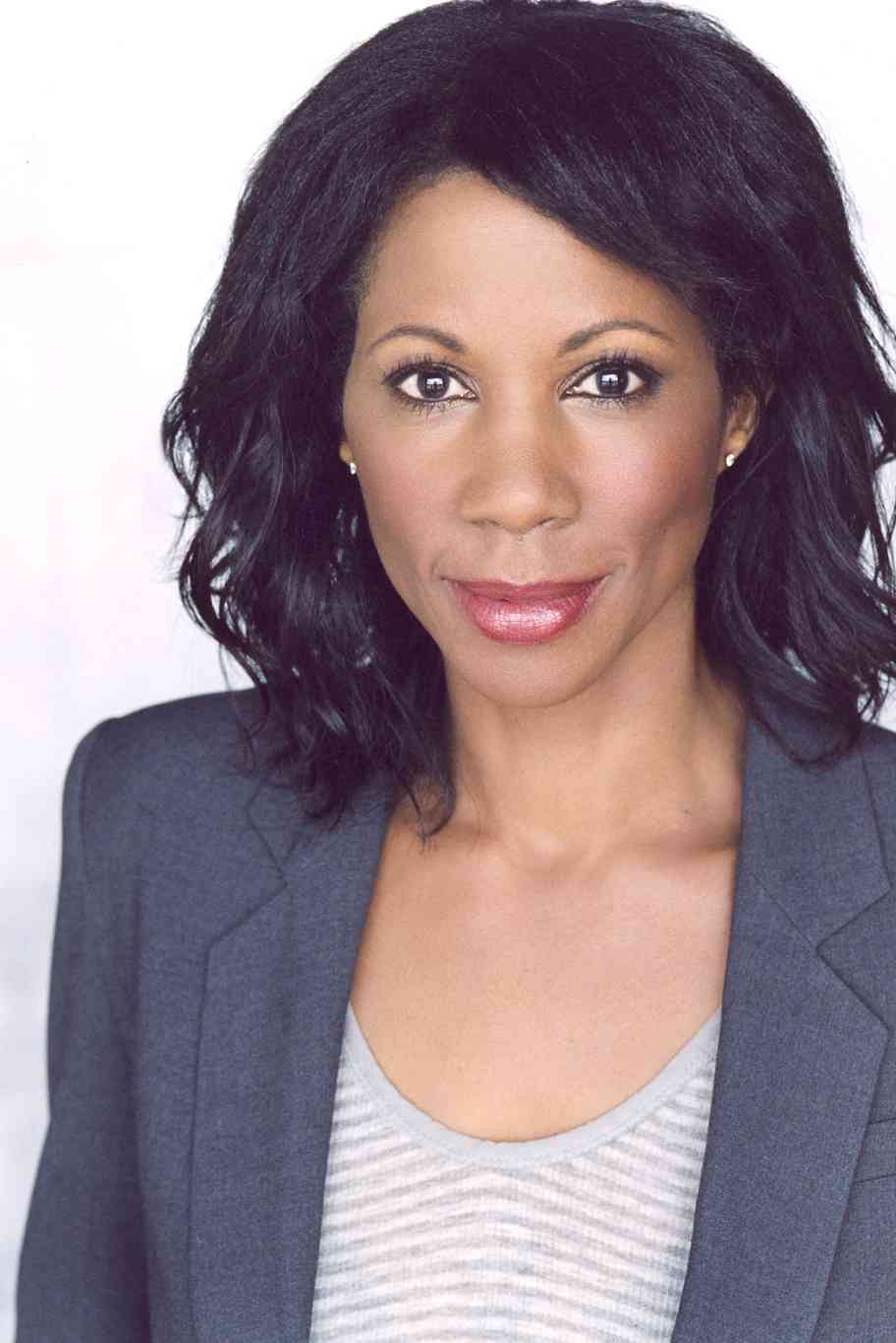
Judith, as one of the creators of the life-changing Acting for the Camera program, what do you believe makes it stand out from the rest?
I think there are a few things that make this program stand out:
The quality of our teachers. All are working professionals, so we are able to share our current, real-life experiences with our students. We know what works and doesn’t work because we’re out there working ourselves.
The career development class. We bring professionals in to help our students with the business side of show business and offer them ways to create and market their own content so they won’t have to wait for someone else to hire them–they can hire themselves.
The opportunity to network with the other professional program students. The producers and screenwriters they meet at UCLA today are the people they will be collaborating with in the future.
Q&A – Instructor Neil Landau – Writing for Television
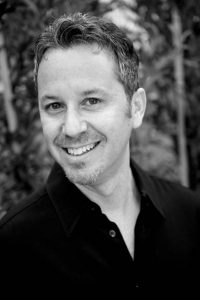 What is the future of the television industry? We asked UCLA Writing for Television instructor and author of TV OUTSIDE THE BOX: Trailblazing in the Digital Television Revolution in this month’s Q&A.
What is the future of the television industry? We asked UCLA Writing for Television instructor and author of TV OUTSIDE THE BOX: Trailblazing in the Digital Television Revolution in this month’s Q&A.
Over the next five years, how can we expect the television industry to change?
We’re moving from a linear TV business, with scheduled shows in time slots, commercials, and overnight TV ratings, into an on-demand global digital/streaming TV business. It’s not just about ABC, CBS, NBC, and Fox anymore. We now have a plethora of on-demand TV networks (broadcast, premium cable, basic cable), both AVOD (advertiser supprted video on demand: Hulu, Sony Crackle, CW Seed, and now virtually every network offers an “all-access” AVOD option) and, of course SVOD (subscription video on demand) streaming networks like Netflix, Amazon, and Hulu+. The viewer is now in charge of what and when to watch. Serialized series are now preferred because they create an ongoing relationship with an audience, and no one is worried that if a viewer misses an episode or two that he won’t be able to catch up. But with so many platforms and networks, the audience is now fragmented, and the only programs that are getting huge ratings are live sports and some major events. On-demand has also made anthology and limited series viable again (Fargo, American Horror Story, True Detective, Black Mirror, Making a Murderer). We’ve also added the term “binge-viewing” to the vernacular. Netflix doesn’t like the term because it sounds perjorative, but I love having the option of watching every episode as fast as I choose, a la a great page-turner novel. If you can’t put it down, why is that bad?
Is there too much content out there?
FX Chief Jon Landgraff recently made headlines by pronouncing that we’re now in a “content bubble” with an unprecedented 415+ scipted series available across multiple platforms. But I take the view that lots of choice is a good thing, especially when it encourages connection; we may not have the office water cooler, but we now have the global water cooler conversation happening via social media. To me, there may be too much mediocre TV series, but there can never be too much great TV. I wouldn’t call it a content bubble. I’d call it a content Renaissance. There has never been a greater demand for fresh, original, authentic voices in the TV business than right now… and I anticipate that need will continue to expand in 2016… and then plateau due to what I’ve coined as “digital Darwinism.” We also need to bear in mind that “high quality” television is very subjective. House of Cards might fit the bill for one viewer; Fuller House might fit the bill for another viewer. It’s all about many choices as opposed to one series needing to appeal to everyone in the broadest (safest) sense possible; now we have something for everyone.
What is the formula for creating good content?
Originality + authenticity. Fresh ideas, distinctive voices, and arenas — a glimpse into a world we don’t know, or only know superficially. But, as with movies and plays and novels: it always comes down to creating iconic characters and then seeing how they perform under pressure. Great storytelling is always about fascinating, flawed, complex, and sympathetic characters getting in and out of trouble. One of my former UCLA Screenwriting professors, William Froug used to tell us: “In real estate, it’s location, location, location. But in screenwriting it’s conflict, conflict conflict.” Or as our leader Richard Walter always says (it’s our credo): “Don’t be boring.” I like to encourage my TV writing students to take risks on the page by pushing their characters to the edge. What’s the line he or she might never cross? Then have them cross it. You can learn how to create great TV series by studying brilliant TV series, from Oz and The Wire, to The Sopranos and Breaking Bad; from All in the Family, M*A*S*H, Taxi and Cheers to Seinfeld, Modern Family, Veep, Louie… and way too many to mention here.
In what way will the Professional Program in Writing for Television prepare students for a career in this changing television industry?
Our motto in the School of Theater, Film & Television is “Creating What’s Next.” So while it’s essential to learn from the masters from the past, we keep our eye on the future. We’re on the cutting edge of new streaming series on Netflix and Amazon and Hulu. I’ve invited in panelists from Orange Is the New Black, Transparent, Casual, along with creators/producers/ writers/showrunners from Better Call Saul, Brooklyn Nine-Nine, Jane the Virgin, Switched at Birth, Homeland, and, again, too many to mention here. The Professional Program in Writing for Television encourages innovation, so I’m going to invite experts from the rapdily expanding field of Virtual Reality storytelling, as well as web series. We also encourage diverse voices writing from their own authentic experience. While we’re nimble and adpating to the ever-changing TV biz, we’re also pragmatic and want to see our students succeed by not only creating and selling their original pilots, but also seeing them get staffed on TV series — where the majority of the jobs exist for screenwriters today. We want your fresh, unique, specific voice and can help you develop and hone your craft. We teach the basic nuts and bolts so you can learn them, but then transcend them. There is no formula for success except talent and hard work; you can’t succeed with one without the other. 90% perspiration, 10% inspiration is the common analogy. Luck and timing also play a large role. The harder I work, the luckier I get.
You can learn more from Neil every week in our Professional Program in Writing for Television.
Q&A – Instructor Tim Albaugh – Screenwriting
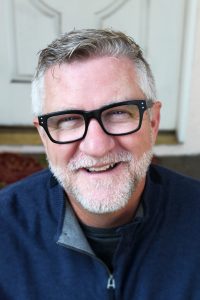 Meet UCLA Screenwriting Lecturer Tim Albaugh.
Meet UCLA Screenwriting Lecturer Tim Albaugh.
In this issue’s Q&A Tim discusses the state of the industry, the five most important screenplay elements, securing representation, and more.
THE FILM INDUSTRY IS CONSTANTLY CHANGING. WHAT IS THE CURRENT STATE OF THE FILM INDUSTRY, AND HOW CAN SCREENWRITERS BREAK IN?
Even though the state of the industry is constantly changing, one thing remains the same: good material makes waves. Write a great script; something original and fresh. I always tell my students to write the movie only they can write. The days of the huge spec script sale are gone, but writers can’t lose sight of the fact that their scripts are pieces of their resumes; and a good script will get you noticed. It may never get made, but it will get you work. Everyone talks about how owning an IP (intellectual property) gets you into the game. Sure, the studios all tend to be adapting comic books into huge films, but you aren’t going to break into the business writing a movie like that. There are already tons of working writers out there who do it well, and get paid very well to do it. Write that personal script. One that shows you can tell a story well. Opportunity will follow.
THERE IS A LOT OF INFORMATION ON SCREENWRITING AVAILABLE IN BOOKS AND ON THE INTERNET. WHAT ARE THE BENEFITS OF STUDYING SCREENWRITING AT UCLA?
Yes, it seems every day there is a new book or blog about writing that promises to pass along the secret to success. But, it’s one thing to read about it; it’s another thing to actually do it. In our program, you are forced to write. Every day. Whether you want to or not. And you are held accountable for the work. At the end of your first year in our program you will have written two feature screenplays. That’s a lot of work.
Besides accountability, another benefit is the relationships you will build. Hollywood is a town built on relationships. It’s nice to have a great script, but it’s worthless if you can’t get anybody to read it. In our program you will not only forge relationships with your instructors (who are working writer/producers), but you will forge relationships with the writers, directors, producers and studio executives of tomorrow: your classmates.
WHAT ARE THE FIVE MOST IMPORTANT ELEMENTS OF AN ORIGINAL SCREENPLAY?
Conflict. Conflict. Conflict. Conflict. Conflict.
I digress. Besides conflict (both external and internal) you need a protagonist who can sustain the film and drive the narrative. Someone who is relatable to an audience. Someone who is flawed. And their flaw needs to create the narrative of the film. For example, in “Finding Nemo” Marlin is overprotective to a fault. We understand why: his whole family was eaten. Except for Nemo. Nemo, on the other hand, is inquisitive and a tad rebellious. Why? Because his father is overprotective. And from those elements comes the plot.
A strong premise is important, too. It’s the argument you are making about the human condition with your script. Some may call it theme. It’s the whole point of your script. But, it needs to come organically from the characters’ pursuit of a goal. You don’t want the tail to wag the dog. By pursuing what she wants (plot), a character comes to discover what she needs (premise/theme). Not every character will arc, but every story should have a premise.
A clear, tangible goal is an important element of a screenplay, as well. It gives a script focus. It doesn’t have to be complicated. The goal in “Finding Nemo” is, uh, to find Nemo. In “Tangerine” it’s to find the pimp. Simple is the key. Then that gives you the room to explore character.
Another important element of a screenplay is subplots. Too many times I find screenplays flat and one dimensional and that’s because they lack subplots. Subplots serve to complicate the protagonist’s goal, but they also carry the larger thematic thread, or premise. For example, in
“The Sixth Sense” the subplots not only complicate Malcolm’s attempts to “cure” Cole, but they also share the same thematic thread revolving around lack of communication. It is only when the characters in the film communicate that they succeed.
These five elements are just the foundation of a good script. There are other elements such as dialogue and action that also play a role, but all the extras fall on deaf ears without a strong grounding in those five core elements.
THERE ARE A MILLION CONTESTS OUT THERE. ARE THEY WORTH ENTERING?
Yes. But you need to do your homework. Focus on the contests with strong ties to The Industry. The “Written in South Dakota” screenplay contest probably won’t do you any good in terms of industry access, but winning it may stroke your ego. But, the goal of a contest is to get you and your writing noticed. Industry insiders pay attention to contests like The Nicholl Fellowship; The Disney Fellowship; Austin Film Festival’s competition. Major competitions with direct access to The Industry. And, of course, The UCLA Professional Program contest is important as well. The school’s reputation catapults winners of our contest to the “must read” pile. And, we publicize the winners in Variety and The Hollywood Reporter and on Deadline Hollywood.
HOW DO YOU GET REPRESENTATION?
By winning a contest! Well, it’s not the only way, but it helps. But, again, we don’t want the tail to wag the dog or to put the proverbial cart before the horse. You get representation by writing an original screenplay that showcases your unique voice. Not just once, but over and over again. Then you parlay the relationships you’ve made at UCLA to get that script read. It all fits together nicely. Your instructors or classmates will have connections. When they see something good, they will pass it along. I get requests from agents and managers all the time asking me who the next hot person is coming out of my UCLA classes. And, of course, I refer the writers I feel have to chops and material to fill the bill. Don’t forget; agents only get 10% of your earnings because they only do ten percent of the work. You need to be proactive in the development of your career. That means not only working hard to be the best writer you can be, but also working hard to forge relationships that will get you read. At UCLA, we help you do both.
Q&A – Alumni Rocco Pucillo – Screenwriting
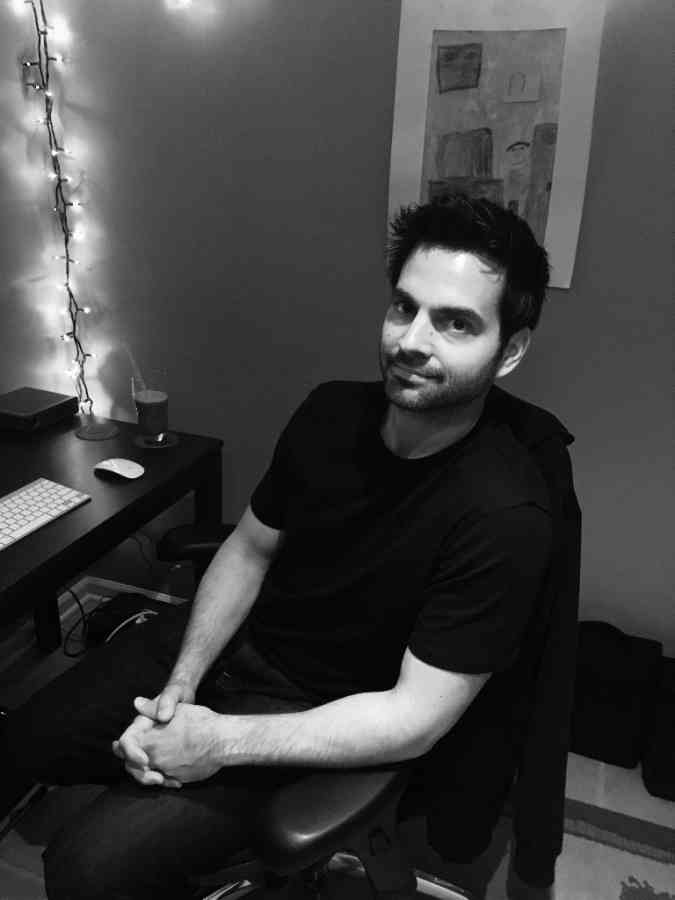 Rocco Pucillo has been incredibly busy since finishing the Professional Program in Screenwriting at UCLA. We caught up with him for some advice for our current students.
Rocco Pucillo has been incredibly busy since finishing the Professional Program in Screenwriting at UCLA. We caught up with him for some advice for our current students.
What’s the most valuable thing you learned at UCLA?
Pitching is important. I sold two original feature projects from pitches, so learning how to properly pitch is essential. A lot of writers are afraid to pitch, but it’s a huge part of the business — so take the class when it’s offered! UCLA also taught me how to listen to notes. On every studio project, people have notes. Execs, producers, directors, actors — everyone. It’s extremely collaborative. And I think the UCLA writing workshop prepares you for this. Many of the notes sessions I’ve had are basically a bunch of people sitting in a room, critiquing a document you gave them — not much different than a UCLA workshop (except for the money involved, of course). You have to be open to changes and listen to feedback. Like I said, this business is extremely collaborative. Now I understand why the workshops are structured the way they are. It’s good experience.
What’s your writing process?
It changes depending on the project. Writing features or TV for a studio is different than writing a spec on your own. But I have a few constants. When I get a story idea, I create a file folder (both digital and physical versions). Then I go about my life. When scenes or characters pop into my head, I jot them down and drop them in the folder. I also build a music playlist — scores and songs that match the mood of the story. I know a playlist works when it helps me fill in the blanks. At a certain point, when I have enough notes and a fitting soundtrack, I start writing. Then the characters take over. Not all notes, songs or characters survive this process. Some get discarded — or, if they’re lucky, sent away to another folder for a different story.
What projects are you working on now?
A few weeks ago, I finished a draft of a feature for Warner Bros. Now I’m writing a freelance episode for a Netflix TV series. I recently secured the rights to a book, so I’m cooking up a feature pitch for it. And then I’m developing a new spec script. You learn real fast to spin multiple plates, because odds are most plates end up smashed on the floor.
What is your advice to current struggling writers?
That’s a tough one. Because the struggle never ends. I’m still learning the business, too, so I’m no expert. But knowing what I know now, it’s a little more than “follow your dream.” So let’s say… Follow your dream, but treat it like a job. Work hard, be professional, build a good reputation, read a lot, and write a lot. And never stop learning. You can always improve. Unfortunately, there’s no path to guaranteed success. A lot of it is WHAT you’re willing to sacrifice, and HOW LONG you’re willing to sacrifice it. Some people have responsibilities that take them away from writing. They might have a sick loved one, or maybe they have kids. And if you have financial responsibilities, are you willing to walk away from a good job and live broke so you can finish that script, with no guarantee it’ll get you anywhere? It’s not easy to follow your dream. It’s always a balancing act. Somehow, I kept at it, but I’m a little nuts.
Q&A – Instructor Emily Rose – Acting for the Camera
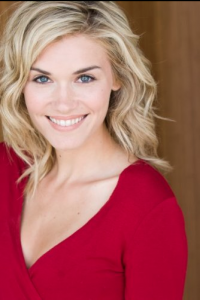 Emily, you recently completed a five-year run as the lead character on SyFy’s Haven. What advice do you have for students looking to break in?
Emily, you recently completed a five-year run as the lead character on SyFy’s Haven. What advice do you have for students looking to break in?
Be prepared. As my late mentor Gordon Hunt used to say, “You can book work when opportunity meets preparation.” If you are here long enough the opportunity will come. Will you be prepared for it?
Don’t underestimate kindness. They are not only auditioning your talent but seeing if you are someone they could see themselves being on location with for 6 months out of the year.
If you ever get an opportunity to be on the other side (the casting side) of the audition table, DO IT! You will learn so much by watching others audition, invaluable.
Have a life outside of acting, find a family with kids to hang with, volunteer/serve others, build something, take spontaneous road trips, hang with mentors from an older generation — this will only add depth to the layers of your life and your colors as an artist.
Professional
Programs
Taught by top industry experts and leaders working in the entertainment industry. Learn more about the Professional Programs at the UCLA School of Theater, Film and Television.

